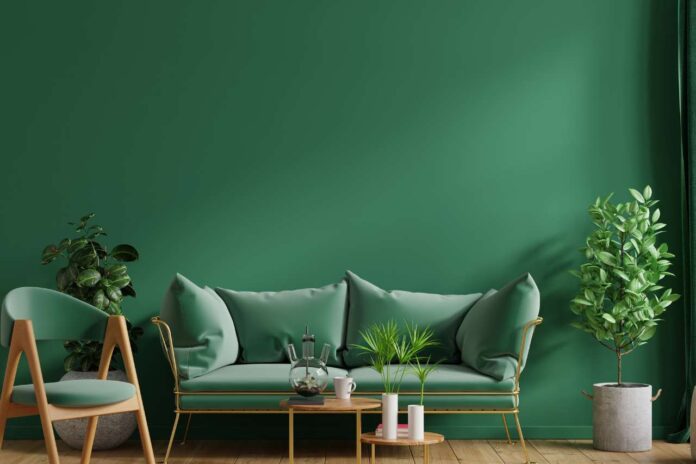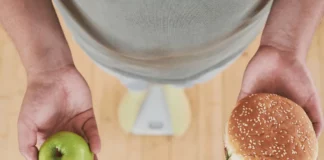Living like a minimalist for a month can reduce stress and increase focus. It simplifies life and fosters contentment.
Minimalism focuses on living with less to gain more. It encourages decluttering your space, mind, and schedule. Embracing minimalism for a month can lead to noticeable changes in your lifestyle. You might find yourself more organized and less overwhelmed. By eliminating excess, you make room for what truly matters.
This lifestyle can boost your mental clarity and overall well-being. Minimalism is not just about getting rid of things; it’s about making intentional choices. It helps you prioritize and appreciate the essentials. If you’re curious about the benefits, a month-long trial can be an eye-opening experience.
What Is Minimalism?
Minimalism is a way of living with less. It means owning fewer things. The focus is on what truly matters. You only keep items that you love and use. This leads to a simpler, more meaningful life.
Benefits Of Minimalism
Minimalism can make you happier. It reduces stress and clutter. You save money by buying less. Your home becomes easier to clean. You have more time for fun activities. Minimalism helps you focus on important things. It can improve your mental health.
Preparing For The Minimalist Lifestyle
Take a look at your home. Notice the clutter and extra items. Make a list of what you really use. Identify items that bring you joy. Ask yourself if you need each item. This helps you see what you can let go of. Reducing clutter can make you feel lighter.
Decide what you want to achieve. Set clear and simple goals. Write down why you want to live like a minimalist. This keeps you focused. Your goals might include saving money or reducing stress. Make sure your goals are realistic. Start with small steps. Celebrate your progress along the way.
Decluttering Your Space
Start with your bedroom. Remove clothes you haven’t worn in a year. Donate or recycle old items. Next, tackle the kitchen. Keep only the utensils you use daily. Clear out expired food. Move to the living room. Remove extra decorations. Keep surfaces clean and simple. Finally, sort through your bathroom. Dispose of old makeup and toiletries. Keep only what you need.
Ask yourself if an item brings you joy. If not, let it go. Think about the last time you used it. If it was over six months ago, you likely don’t need it. Consider the space it takes up. More space means more peace. Imagine someone else enjoying the item. This can make it easier to give away.
Minimalist Wardrobe
A capsule wardrobe has a few essential items. These items can mix and match easily. You need a few tops, pants, and one or two jackets. Choose neutral colors like black, white, and gray.
Pick clothes that you love and feel comfortable in. Quality is more important than quantity. A minimalist wardrobe helps you save time and money. It also reduces clutter in your closet. By wearing fewer clothes, you also help the environment.
| Item | Quantity |
| T-Shirts | 3-4 |
| Pants | 2-3 |
| Jackets | 1-2 |
| Shoes | 2 pairs |
| Dresses | 1-2 |
Simplifying Your Daily Routine
Start your day with a clean and tidy space. Keep your bathroom essentials to a minimum. Use only one towel, one toothbrush, and one soap. Lay out your clothes the night before. Choose simple outfits that are easy to wear. Prepare a quick, nutritious breakfast with just a few ingredients. Keep your kitchen counters clear to reduce stress. Limit your morning activities to what is essential. This helps you start your day with a clear mind.
Limit evening screen time. Spend time reading a book or journaling. Keep your bedroom clutter-free for better sleep. Use a single notebook for your thoughts and plans. Prepare your clothes and lunch for the next day. Reflect on your day and set simple goals. Practice a minimalist skincare routine with just a few products. This helps you wind down calmly.
Mindful Consumption
Impulse buying happens when you see something you want and buy it right away. Living like a minimalist helps you think before buying. Ask yourself if you really need the item. Wait a day or two before making a purchase. This helps reduce unnecessary spending. You will find you buy fewer things. Your home will have less clutter. Your wallet will thank you too.
Minimalists prefer quality items that last longer. Buying fewer but better things saves money in the long run. Cheap items often break or wear out quickly. Quality products bring more joy and satisfaction. You will have fewer items, but they will be valuable. This makes life simpler and more enjoyable.
Digital Minimalism
Experimenting with digital minimalism for a month can simplify your life and boost productivity. Reducing screen time fosters deeper connections and enhances mental clarity.
Organizing Digital Files
Start by deleting unused apps and files. Create folders for important documents. Use cloud storage for backups. Keep your desktop clean with only essential icons. Empty the trash regularly. Use naming conventions for easy searching. Archive old emails to reduce clutter. Sort photos into albums or delete duplicates. Unsubscribe from newsletters that you don’t read. Keep only one or two browsers for internet use.
Reducing Screen Time
Set specific time limits for social media. Use apps that track your screen time. Schedule no-screen hours during meals. Replace screen time with hobbies like reading. Turn off notifications to avoid distractions. Limit video streaming to weekends. Read books instead of articles online. Encourage face-to-face conversations. Use blue light filters in the evening. Charge devices outside the bedroom.
Reflecting On The Experience
Living like a minimalist for a month offers profound insights. Experience the freedom of decluttering and focus on what truly matters. Simplify your surroundings and find unexpected joy in less.
Challenges Faced
Living like a minimalist can be hard. Letting go of many items feels strange. Some items hold memories, making it tough to part with them. Shopping habits need to change. Buying less means making thoughtful choices. Sometimes, friends and family do not understand this new lifestyle. They might ask questions or even make fun of you. Finding joy in fewer things takes time. It is a new way of seeing the world.
Personal Growth And Insights
Living with less can bring clarity. Fewer items mean less clutter. This helps the mind feel calm. You might find new hobbies. Reading or walking can replace shopping. Money saved can be used for experiences. Traveling or learning new skills becomes easier. Relationships with people might get stronger. There is more time to spend with loved ones. Overall, living simply can bring much happiness.
Long-term Adoption
Minimalist habits can be easy to maintain. Keep only what you need and love. Declutter your space regularly. This helps you stay focused. Create a system that works for you. Use it daily. Avoid impulse buying. This keeps your home simple. Teach your family about minimalism. They can support you.
Plan your purchases carefully. Always think before you buy. Ask yourself if you really need it. Focus on experiences over things. Travel light. Pack only the essentials. This makes trips easier. Reduce digital clutter. Organize your files and delete what you don’t need. Enjoy the freedom minimalism brings. It can make your life simpler and happier.
Conclusion
Living like a minimalist for a month can transform your life. You’ll experience less stress and more clarity. Minimalism helps you prioritize what truly matters. It’s a journey worth trying for anyone seeking simplicity. Start today and see the positive changes unfold in your life.


